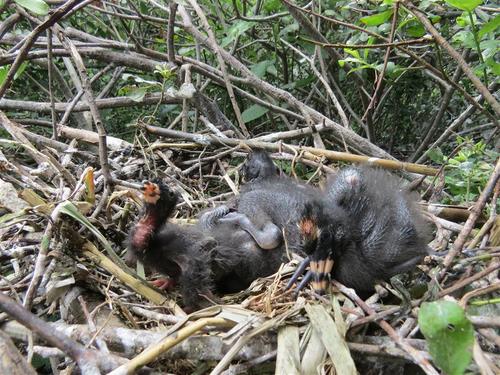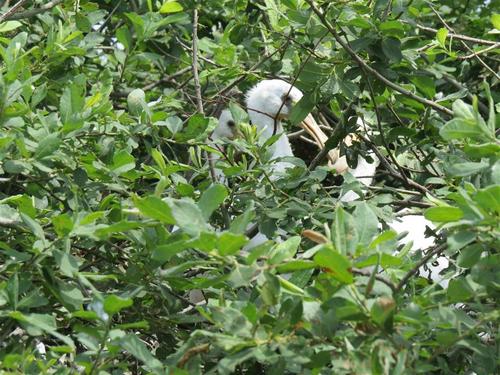They were missing for more than 20 years. Now the spoonbill and the glossy ibis are back to the Serbian nature reserve Obedska Bara – a wetland complex around the largest oxbow along the Sava River. In the course of a monitoring tour in early June, staff of the Institute for Nature Conservation of Vojvodina province and Secretariat of Urbal Planning and Environmental Protection of the Province found four breeding pairs of ibises and six to eight pairs of spoonbills.

The first chicks of Glossy Ibis have hatched already.
© Slobodan Puzovic
Also the spoonbills have successfully bred.
© Slobodan PuzovicThis success is owed to a comprehensive set of measures which the conservation department, supported by EuroNatur and others, implemented as part of the conservation programme “The Return of the Ibis”. In addition to a range of partner organisations, more than 200 volunteers supported the programme.
While in the first half of the 20th century about a third of the 10,000 hectares nature reserve still were wet meadows and pastures, over the centuries many farmers quit pasturing , which resulted in bushes and trees overgrowing the wet meadows and shallow ponds. In addition, interference in the Sava’s water regime caused part of the wetlands to fall dry and get overgrown. As a result, ibises, spoonbills and many other bird species had lost the open areas they need to find food.
The programme by the Serbian conservationists included clearing 200 hectares of former meadows and pastures and bringing back the water for parts of the year. In order to keep these areas permanently open, the meadows are cleared and partially pastured on a regular basis. Today Obedska Bara is a perfect habitat again for the glossy ibis and for the spoonbill. Black storks, night heron and little egret benefit from the programme, too.


